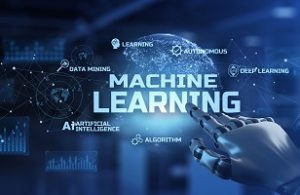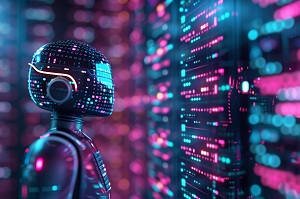
Artificial intelligence (AI) is based on computer systems that can perform tasks that normally require human intelligence. Tasks include decision-making, language understanding, problem-solving, and visual perception. AI takes in a variety of technologies from language processing, machine learning, neural networks, and robotics.
AI is making strides to help business, government, the military, and our lives with our complex jobs. Organizations can operate more effectively and stay competitive longer with its use. Students who plan to study information technology look forward to understanding its key concepts and applications. Contact ITI Technical College today for more information.
Benefits Of Artificial Intelligence
Artificial intelligence is important to us for many reasons whether it is for business or personal use. Here is how the essential benefits make our work and lives easier:
- Accessibility allows people with disabilities to more easily access communication, functions, and mobility.
- Efficiency is achieved because AI can automate mundane and repetitive human tasks that allow employees to focus on more complex and creative work.
- Improved Decision-Making is possible because AI can analyze large amounts of data to make predictions and recommendations based on the data. The result is making more informed decisions.
- Innovation can be driven in many industries including entertainment, finance, healthcare, information technology, and transportation.
- Personalization allows AI to personalize individual experiences. Examples include customized home plans, healthcare treatments, or streaming services.
Let’s next look at how machine learning plays a role in artificial intelligence.
Machine Learning Is A Key AI Concept
 Machine learning is an advanced subset of AI that trains algorithms to make decisions and predictions based on large datasets to learn patterns and make decisions. The three basic algorithms in use include:
Machine learning is an advanced subset of AI that trains algorithms to make decisions and predictions based on large datasets to learn patterns and make decisions. The three basic algorithms in use include:
- Reinforcement learning involves training algorithms to make decisions based on rewards and punishments
- Supervised learning consists of training algorithms on labeled data
- Unsupervised learning involves training algorithms on unlabeled data
Some examples of machine learning you may be familiar with include autonomous vehicles, social media, chatbots, customer experience, and fraud detection. More include:
| Pattern Recognition | Decision Trees | Recommendations |
| Linear Regression | Facial Recognition | Translations |
| Computer Vision | Extraction | Predictive Analytics |
| Cybersecurity | Traffic Predictions | Virtual Assistants |
| “Artificial intelligence (AI) is based on computer systems that can perform tasks that normally require human intelligence.” |
Deep Learning Uses Neural Networks
Deep learning is another advanced subset of machine learning that trains neural networks with multiple layers to recognize patterns in data. A neural network is an AI method that teaches computers to process data similar to a human brain.
Deep learning models are used for complex tasks that search huge amounts of data. This can include image recognition, natural language processing, speech recognition, and autonomous driving. Further explanations of these concepts include:
- Image recognition identifies people, objects, and features within images. The accuracy is excellent and enables practical applications.
- Natural language processing can analyze and generate human language such as translation, chatbots, and sentiment analysis.
- Speech recognition transcribes speech to text with excellent accuracy. Common applications include call center automation, virtual assistants, and dictation software.
- Autonomous driving uses sensors based on cameras that analyze driving conditions. They interpret and respond to objects, obstacles, and dangers on roads.
Natural Language Processing Sees Extensive Use
Natural language processing (NLP) uses machine learning technology to give computers the ability to comprehend, interpret, and manipulate human language. It can deal with dialect differences, slang, and grammatical irregularities in common conversations. NLP can analyze text and speech data at a highly sophisticated level. Practical applications in use include:
- Analyze customer feedback
- Answer simple questions
- Classify and extract text
- Process and archive large documents
- Run chatbots for automated customer service
Additional applications are being developed that will see more complex use for business and personal applications.
Robotics Are Becoming More Sophisticated
 The advancements being made in today’s robotics are blurring the lines between science and real life. Robots have been extensively used in factories for many years. Today, they are working in diverse fields, transforming industries, and helping our daily lives. Robots are programmed for hundreds of uses, and here are the top 10:
The advancements being made in today’s robotics are blurring the lines between science and real life. Robots have been extensively used in factories for many years. Today, they are working in diverse fields, transforming industries, and helping our daily lives. Robots are programmed for hundreds of uses, and here are the top 10:
- Agriculture
- Customer Service
- Entertainment
- Food Preparation
- Healthcare
- Manufacturing
- Military
- Security
- Space Exploration
- Underwater Exploration
This type of artificial intelligence is expanding beyond belief compared to a few years ago.
Computer Vision Is Simply Amazing
Microsoft Azure explains that computer vision allows computers to see, understand, and interpret the visual world around us like humans do. Its intelligence allows it to use machine learning models and neural networks to respond to images and videos. This technology mimics the human brain’s ability to recognize and classify things with algorithms and identify unknown images. Here are some common applications:
- Detect fraud and improve security
- Detect lung lesions in medical images
- Enable self-driving vehicles to understand road conditions
- Help radiologists do their work better
- Track players in live soccer games
- Unlock smartphones by recognizing faces
Artificial intelligence is fascinating, and it enhances personal and business applications to an unbelievable level. If you want to learn more, consider earning an associate degree in this field.
For more information about graduation rates, the median debt of students who completed the program, and other important information, please visit our website: https://iticollege.edu/disclosures/




